Riot police deploy water cannons to clear Georgian Parliament of protesters

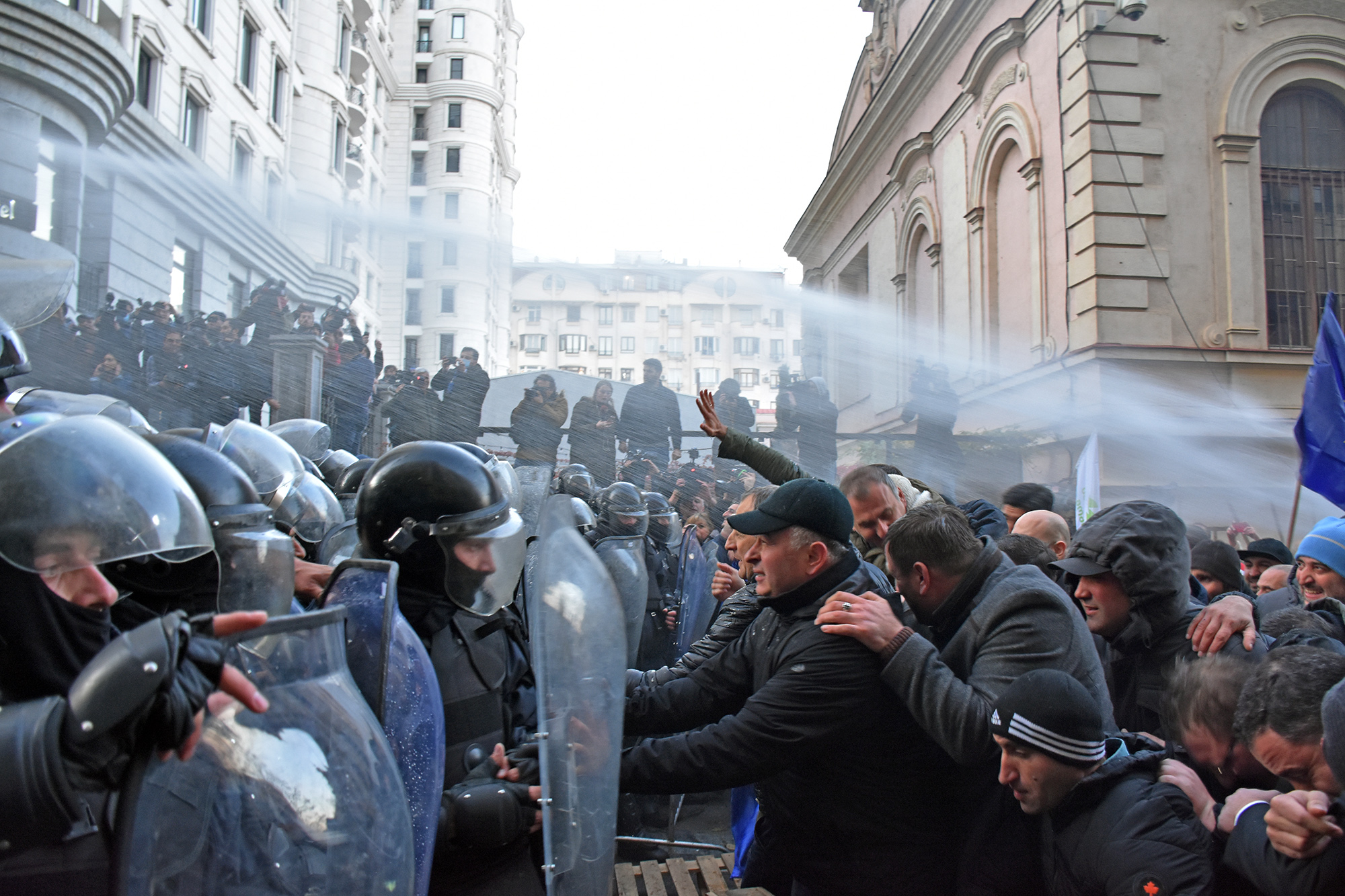
The Georgian authorities have cleared the area around parliament and Tbilisi’s central Rustaveli Avenue, deploying riot police and water cannons. Protesters had been blockading the entrances to parliament since Sunday evening, preventing MPs from entering.
They were demonstrating against parliament’s failure to deliver promised reforms to Georgia’s electoral system.
The Interior Ministry said they detained 18 people during the dispersal for ‘hooliganism’ and ‘disobeying police’.
The Girchi Party said their leader, Zurab Japaridze, was among those detained as well as party member Imeda Kldiashvili. Leaders of the For Freedom youth group Zuka Berdzenishvili and Giga Makarashvili were also reportedly arrested.
Georgian news agency IPN cited the health ministry saying three individuals, including one police officer, were injured during the dispersal.
Before moving in, police gave several warnings to protesters urging them to disperse.
As they approached, demonstrators sat in a row facing the incoming police lines and shouted ‘Georgia’, refusing to leave the rear entrance of parliament.
Riot police forcibly removed several hundred demonstrators from the back and sides of the building, repeatedly deploying water cannons.
Police then moved on to Rustaveli Avenue in front of parliament using water cannons again and removing tents set up by the protesters to block the road.
Police were still pushing demonstrators towards Freedom Square when municipal sanitary workers appeared to clean the area.
Traffic was restored on Rustaveli avenue shortly after the police operation concluded.
Following the crackdown, Speaker Archil Talakvadze chaired a parliamentary session with no opposition MPs attending.
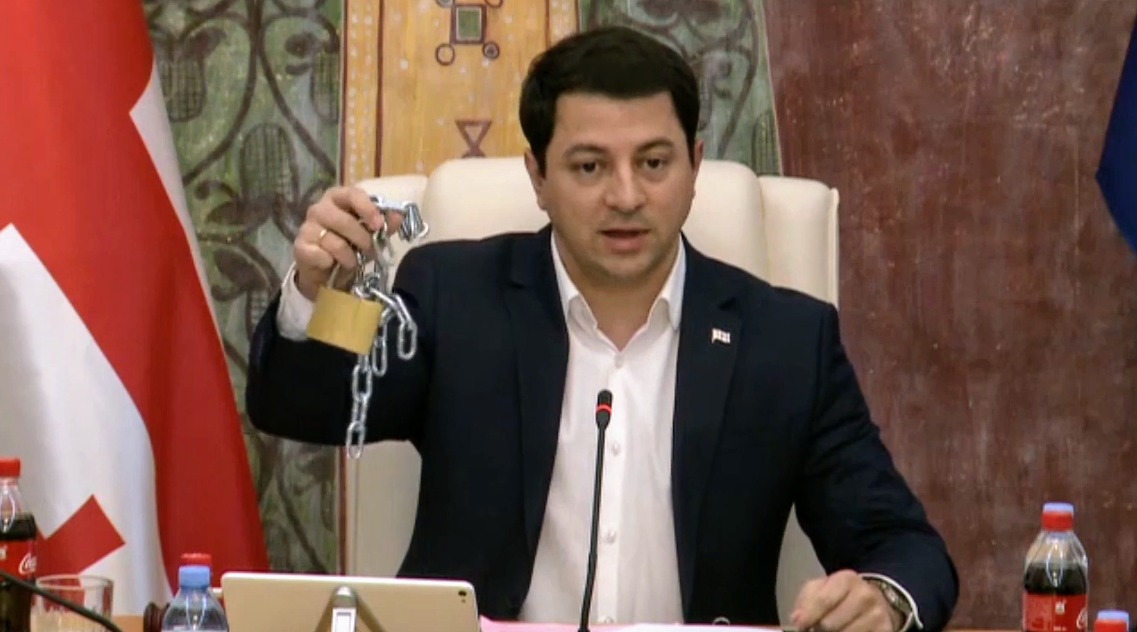
He held up a padlock which, according to him, protesters symbolically placed on the gates of parliament.
‘They should save this to remind them that they can’t put a padlock on citizens’ rights, the state, property, the media, institutions, nor on parliament’.
Minutes before the riot police moved in at 17:00, ten Georgian rights groups including Transparency International Georgia, Open Society Georgia, and the Georgian Young Lawyers Association, called on the authorities to refrain from using force and to start a dialogue with opposition groups.
Sopho Verdzeuli, a lawyer at the Human Rights Monitoring and Education Centre (EMC), told OC Media that although blocking the entrances of administrative buildings was prohibited by law, ‘dispersing a rally is a radical action’.
‘The fact that it was formally a violation of the law does not automatically greenlight this form of intervention, especially when the demonstration was non-violent. The government should have exhausted all the other resources.’
‘This is a matter of proportionality’, she said.
Activists vowed to renew protests and picketing again.
On Monday morning, protesters chased away three MPs who attempted to enter parliament. Two of them, Revaz Arveladze and Merab Kvaraia, were from the ruling Georgian Dream Party.
The third, Gia Jorjoliani, left Georgian Dream in June over controversial judicial appointments. Since then he has been an ardent critic of the government including their U-turn over electoral reforms.
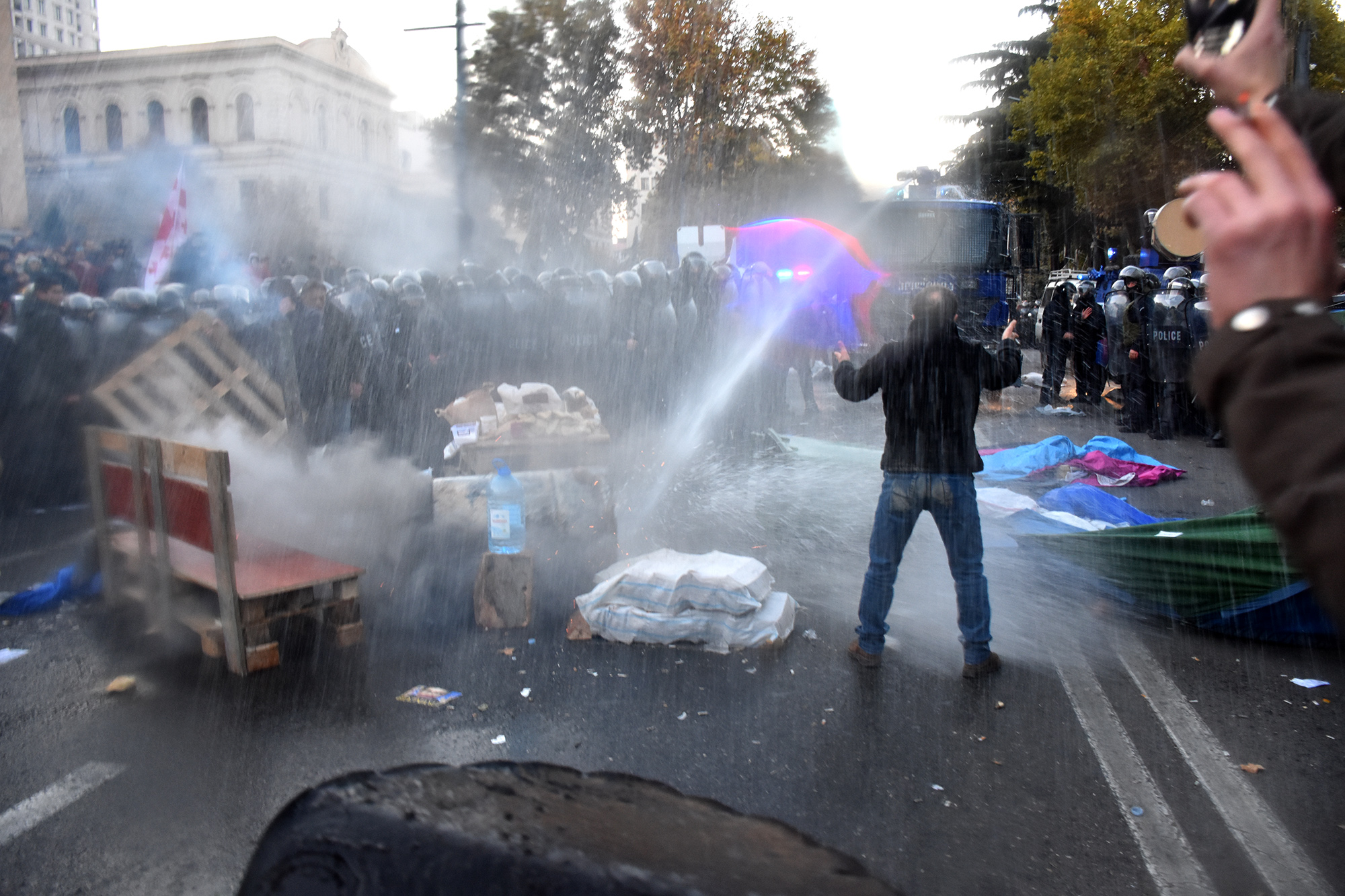
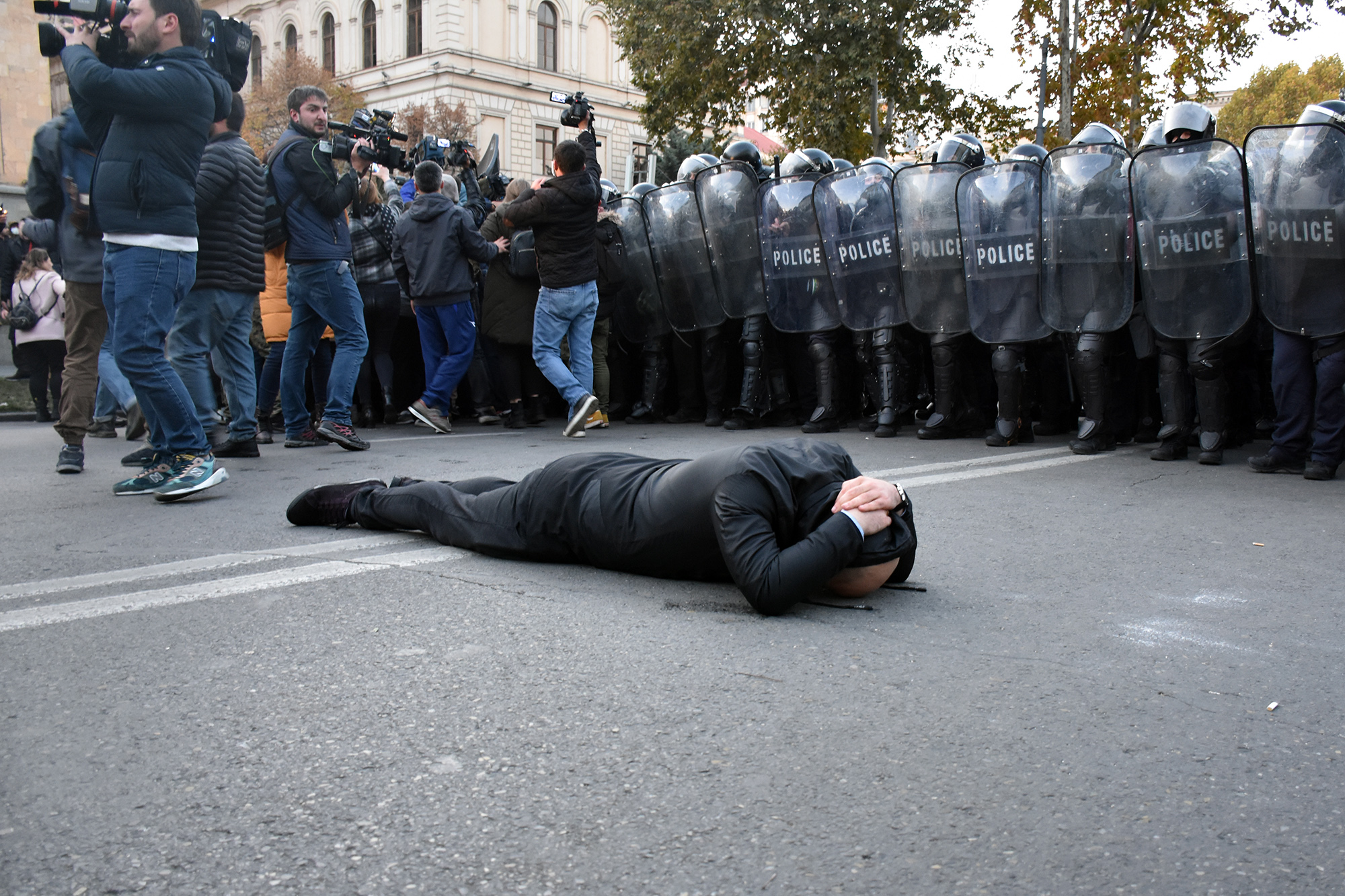
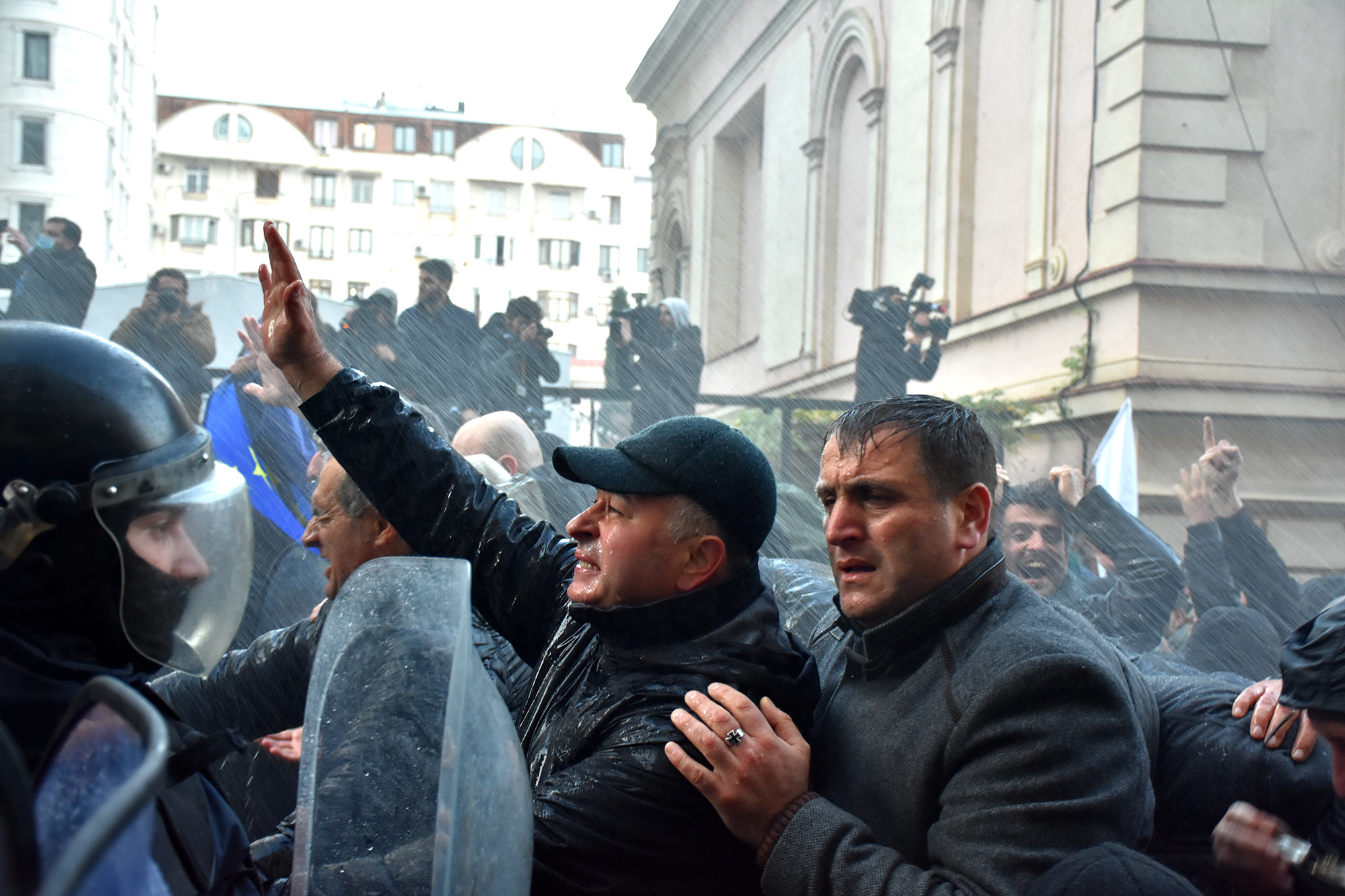
The EU and US react
A day before Monday’s dispersal, the US Embassy and EU Delegation to Georgia put out a joint statement urging the government to ‘restore trust through a calm and respectful dialogue’ with the opposition.
They also called on opposition groups to exercise their right to protest ‘in a lawful manner and within the framework of the Constitution’.
A statement by Georgian Dream General Secretary Kakha Kaladze on Monday, however, included no offer for dialogue with the opposition.
Kaladze insisted in a press conference that the formerly ruling United National Movement Party (UNM) was behind the protests and that Georgian Dream had no intention to revisit their failed electoral reforms package.
‘Popular trust wins the elections, not — electoral systems […] The [parliamentary] elections in 2020 will be held with the mixed system’, he said.
Kaladze, who is also the Mayor of Tbilisi, argued before the media that the opposition, including the UNM and former parliamentary Speaker Davit Usupashvili, had not contributed in recent years to moving the country to a fully proportional system. He said that it was Georgian Dream that had ensured that these changes would come in for 2024.
Unfulfilled promises
The protests began on 14 November after parliament failed to pass an electoral reform bill.
Georgian Dream chair Bidzina Ivanishvili promised to change the country’s electoral system from a mixed system to a fully-proportional one on 24 June in response to public outcry over excessive police force used three days earlier.
On the night of 20–21 June, thousands gathered to protest Russian Communist MP Sergey Gavrilov addressing parliament from the Speaker’s chair, resulting in clashes with police and several injuries, some serious.
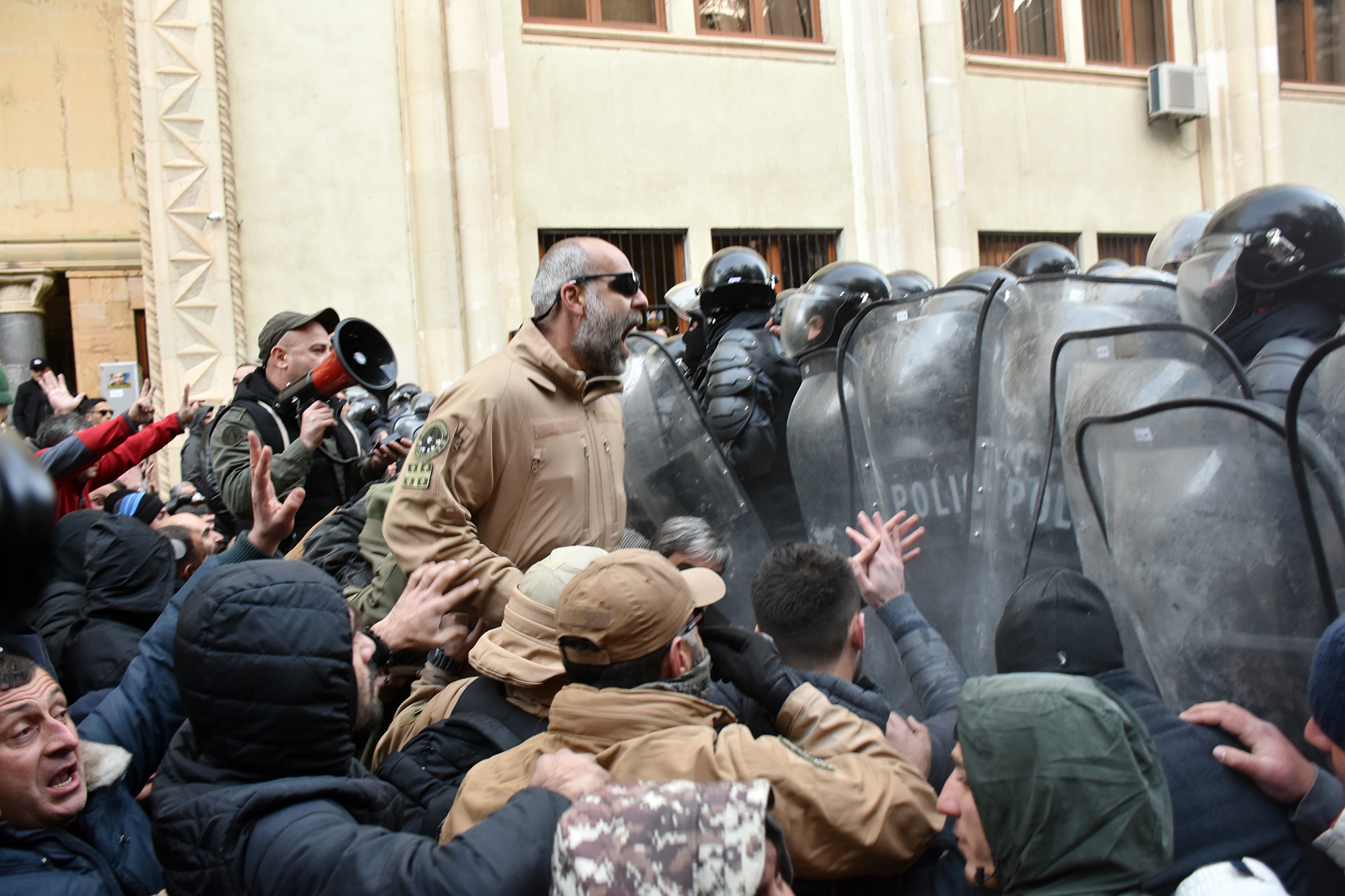
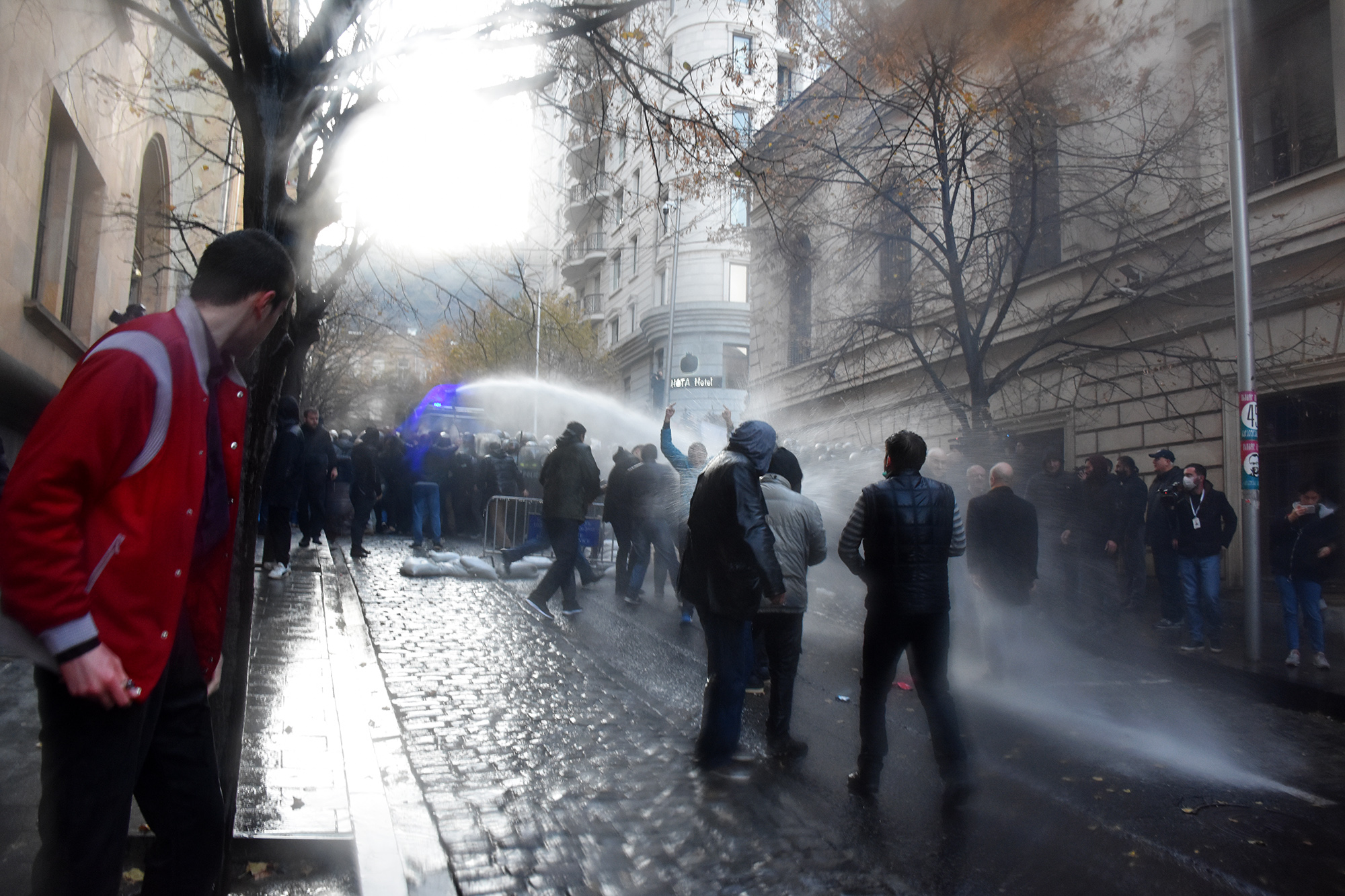
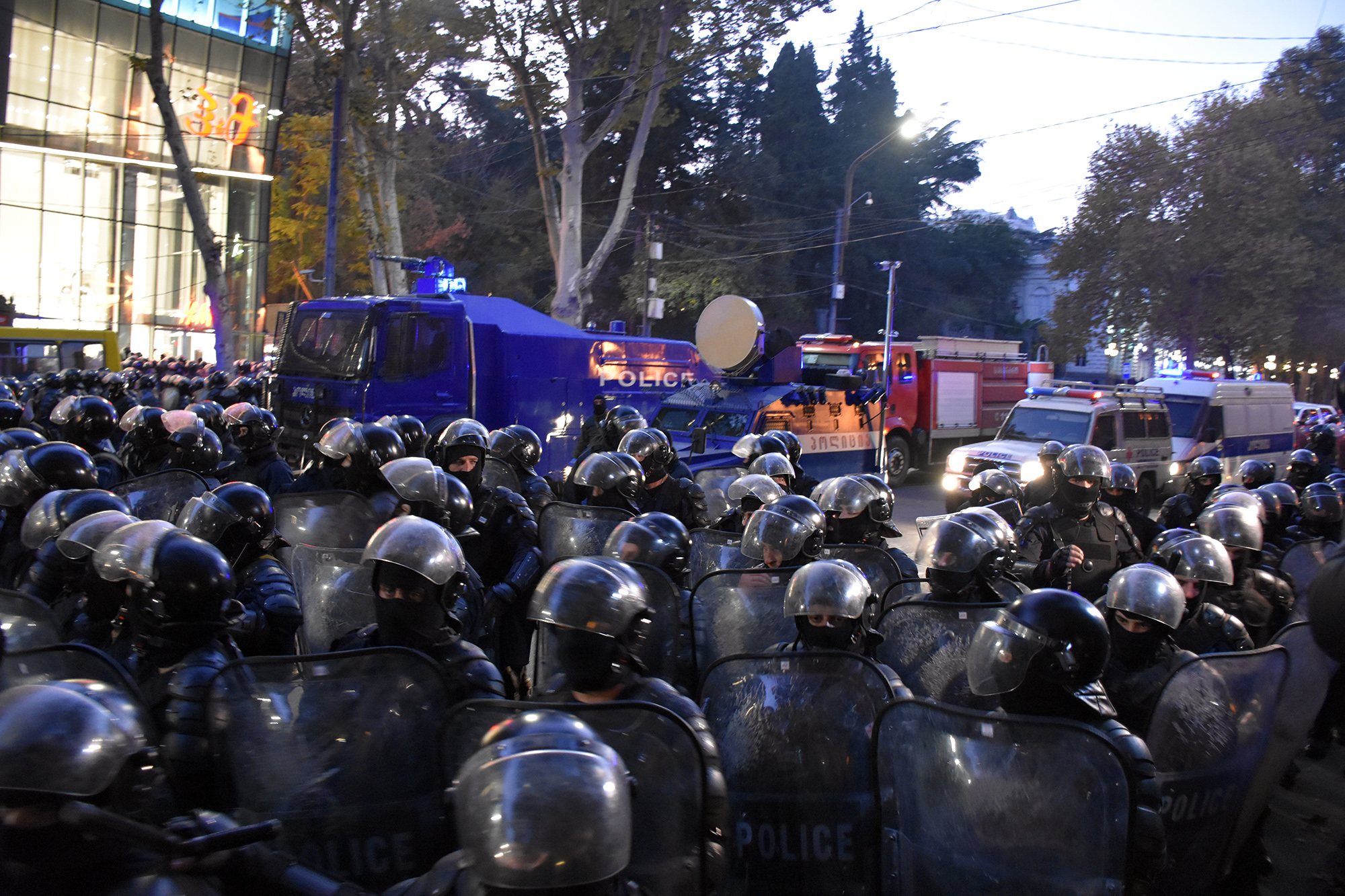
The change in the electoral system required amendments to the constitution, meaning at least three-quarters of parliament’s 150 MPs needed to vote in favour.
In a vote in parliament on 14 November, the bill received 101 votes for and 3 against, falling short of the 113 votes needed to pass.
The three MPs who voted against the bill, Enzel Mkoiani, Kakha Okriashvili and Dimitri Khundadze, are all members of Georgian Dream. Forty-six Georgian Dream MPs abstained or did not vote.
All opposition and independent MPs voted in favour of the bill.
Later that day, Ivanishvili claimed that he was still in favour of the reforms but had failed to persuade members of his party — some of them former employees of his bank. The claim was met with scepticism from the opposition, with many claiming he had orchestrated the U-turn by his MPs.
Since then, several Georgian Dream officials have stated that they do not intend to revisit the issue.









